(Late day edit: Maybe I misunderstood the question or I should have worked a better title. I changed it, but it seems too late. As I’ve learned today, some people say Paperback when they mean Traditional Authors and others say eBook when they mean Indie Authors. I had a lot of people respond to the title of the post instead of the actual content, which didn’t match up. I apologize for the confusion.)
First, some preparations. Got my hard hat, platemail, electrified fence, highly trained attack pet rock, and totally experimental candy cannon. Still feel like this is going to obliterate my Wednesday, but here we go.
I was asked the following question on my ‘Ask an Author’ page by Heather Cai:
What do you think of the market of paperback publishing and ebook like amazon?
There was more to the question, but this is the gist of it. We had a brief discussion about the ‘situation’ on Amazon and how there are authors who write and publish without much else being done. Also how people still look at traditional publishing as the sole path to serious authordom. Basically, the stigmas around indie authors that are still holding out today and will probably turn the comments into an interesting read. Yet, this about my opinion and here we go.
First, my personal history to give you an idea of where I’m coming from. I spent the ages of 17-30 submitting queries, excerpts, and manuscripts to agents and publishers. As you can see, I never got a bite and I was lucky to even get a response. Most of those were form letters, but a few suggested I find a fan-base first. When someone I went to high school with published a book on Amazon, I talked to him about it. Then I was introduced to an author named Larry Kelter who went from trad to indie. He showed me how to do the Amazon publishing and marketing. Now here I am.
Now there are ‘problems’ inherent in both systems, which are polar opposites of each other. Traditional publishing has limited space, so not every author will even get a first glance. A lot of it involves being marketable and tapping into an audience that the publishing house is interested in. So you need to strike the right people and the right time to get in the front door. The indie eBook world has the ‘problem’ of not having a lock on the front door. So anybody can walk in and publish their book. I ran into an eBook for 99 cents that was one sentence and another that was littered with spelling errors that a 6-year-old would be able to point out. The quality control of a place like Amazon is in the author’s hands and some people are in there to make a quick buck off a popular trend.
Many people look at indie authors as those who couldn’t make it and have no talent, but are too stupid to give up. Heck, I’ve been told that a few times. They see traditional publishing as the only true path, but they don’t realize how difficult that is or how there are gems in the indie world. Yes, there was, and still is, a lot of low quality eBooks from people out to make easy money. They’re the ones you will hear about when someone wants to bash the indie author scene. Personally, I think the situation is getting better and you’re seeing higher quality eBooks come out. The initial luster of Amazon publishing is gone, so those looking only for money with little effort have moved on to something else. I would give it a few years and you’ll see more good than bad. Still flawed at times, but worth reading because this is where you get some really hard-working authors that have everything on their shoulders.
Remember that when you see an indie author, you’re looking at someone who is going it alone. They do the marketing, take every review on the chin, rarely have anyone to stop them from taking a misstep, and are learning as they go. An indie author is evolving and growing as a professional and a brand, which is a very stressful situation. I’ve been lucky enough to have great support through my blog and a terrific friend who knows more about this than I do. Many indie authors don’t have this, so you really have to go in with the knowledge that you’re looking at a one-man/woman show . . . and they’re working without a net.
Now I’ve been talking more about the indie author side of things and defending it because that’s where I’m standing. I only have a vague idea of how the trads work and they may always be seen as the ‘true path’ by people. Though I do get the sense that they have to rethink how they approach things because the rise of indie authors has changed the landscape. Now, would I love to be a traditionally published author and see my book in a Barnes & Noble or library? Yes, but I do enjoy the freedom here and would want to retain most of it. So I guess it would have to depend on the contract. To be honest, I’m at a point where I’m simply enjoying writing and publishing my books. Even when I’m stressed out to the point of wishing the world will leave me alone, I keep going because this is what I want to do. That’s how many serious indie authors feel, so you can’t really lump the entire group in with each other. We’re as diverse as the trads if not more so.
I’ll end on my opinion of how I ideally think the traditional and indie worlds should work together. I’ve said before that I look at indie publishing as the author’s open mic night, demo tape, and audition. Unlike acting, singing, and painting, a person needs to put a lot of effort into reading a book. You can’t just hear it or see it, but you have to interact with it and that makes it hard to snare somebody. By going indie, an author can establish a fan base and prove to the trads that they have something worth paying attention to. They can reveal their professionalism or lack thereof. They can learn enough to enter the ‘big leagues’ if they so choose. So I like to think of the eBook world as the talent pool that the trads can watch and pick out of if they so choose. Again, that would be the personal ideal from me.
Now for a song to those that read through this:

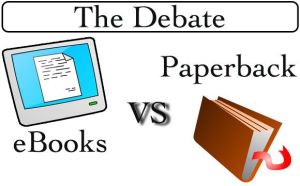
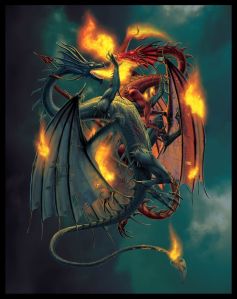
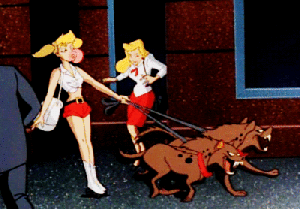
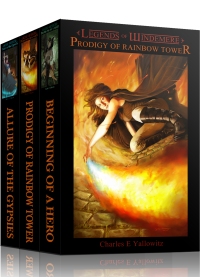

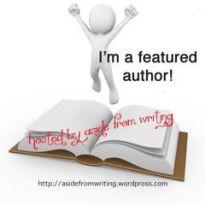

It is kind of the Wild West out there. We do it because we enjoy it, but a few readers really make our day. Those of us who take it seriously put a ton of effort into our projects. Kristen Lamb has a great post today, that’s kind of a cheerleading post for those of us who walk this path.
LikeLike
Good comparison. Though some sites are wilder than others. Nice to see posts that support the indies. We seem to get dumped on a lot, so we could use all of the support we can get. 🙂
LikeLiked by 1 person
Even JKRowling was rejected more than a dozen times. Persevere !
LikeLike
Good example. Stephen King too.
LikeLike
Charles, always learn something about the writing world from your posts! Thank you! Can see the positive in Indie publishing, and the possiblities in trad. Great that Indie works so nicely for you. Christine
LikeLike
Thanks and glad there was a lesson in there. I think the two sides are still trying to find an equilibrium though. I’m always curious to see what’s going to happen next. Lots of opportunities and possibilities out there.
LikeLiked by 1 person
A nice, balanced post. Nice to hear more about your past 🙂
I wholeheartedly share your wish the two sides would learn to work closer. After all, as I always say, most professional authors will probably end up being hybrid ones anyway.
LikeLike
A lot of them are going hybrid. I think those who feel you should choose a side are becoming the vocal minority. We are more prone to announce that we hate something for some reason. Though the relationship could always be closer and more beneficial. A lot of adapting is needed on both sides though.
LikeLiked by 1 person
This is one of my favorite of your post recently. Great insight. Thank you for sharing. I’m with you; I see the Indie world improving once the get-rich-quick schemers see their way out of it. Quality is becoming a requirement, and who knows, maybe the lines between traditional and non-traditional publishing will be even more blurred.
I didn’t see a lot about ebook versus paperback, but I supply both just because everyone has different preferences. I do notice I sell more ebooks online. Paperbacks are great for selling at events.
Great discussion, dude!
LikeLiked by 1 person
You’re welcome and glad you liked it. 🙂
I guess the question and title was misleading. The discussion should have been titled more about indie and trad publishing. Sorry about that. I think it does reveal that people see trads as exclusively paperback and indies as exclusively eBook. I’ve heard that mentioned a few times. It’s interesting how both sides are treated as if they’re entirely different creatures.
Paperbacks are definitely great for selling at events. I tried once with eBooks on a CD and it bombed pretty badly.
LikeLiked by 1 person
Haha, that is so true. People assume trad pub don’t sell ebooks and Indies don’t sell paperbacks.
LikeLike
To be honest, it took me a little time realize eBooks were popular in trad publishers. I thought it was only a few who did it.
LikeLiked by 1 person
Same here though I feel like ebooks are still a new thing in the book industry.
LikeLike
They definitely are. So there’s still time to see if they’ll stay strong or will fall down in popularity. Given people’s love of technology, I’d go with the first option.
LikeLiked by 1 person
I liked your discussion here. The one aspect of Indie that is really appealing is the freedom to publish what you want when. I’m seriously thinking about a collection of short stories. Good post
LikeLike
The freedom is certainly the highlight of the indie world. Though I have seen some authors take it too far. I really think you should do a collection of short stories. The Wednesday posts are always hilarious, so you have the skills for short works.
LikeLiked by 2 people
Gosh. What an endorsement. Thanks
LikeLike
You’re welcome, fellow author. *noble bow that might result in me falling asleep standing up*
LikeLiked by 1 person
I’ve been traditionally published, but I’ve edited and helped market indie published books. So I have a foot in both worlds. There are wonderful books in both worlds. The good news is that indie publishing allows an author to find an audience, rather than allow a good story to sit in a drawer somewhere. For that reason, I’ve seen agented writers go the indie publishing route, because their publishers passed on their books. I’ve had books in Barnes & Noble and seen some of those same books go out of print. If you’re midlist at a publisher, you still have to put effort into marketing your book, because it won’t get the marketing budget of an A-list author.
I’ve had an agent and been without one. Having an agent is not a guarantee that a publisher will buy your book. That’s the downside of publishing. I know a now traditionally published author who was rejected 200 times for the same book. She even received rejections after her book was published!
Charles, if you hadn’t elected to go the indie route, so many people would have missed out on your books. I’m glad you had a friend who could guide you through the process.
LikeLiked by 1 person
I’ve heard that many A-List have to do their own marketing too these days. There’s a lot more on the head of an author unless they have the money to hire an assistant or use a street team.
How do you respond to a rejection after getting published?
LikeLiked by 1 person
After a rejection, I have a sulk, but then I move on, knowing that a ton of people have suffered the sting of rejection. I used to think a rejection was the end of the world. After 100 or so, I realize one is definitely not the end. 🙂
I’ve put aside books that racked up quite a few rejections to work on others. But that doesn’t mean I won’t later revamp some of the rejected books.
LikeLike
It took a few years to get myself into the ‘badge of honor’ mindset. Everyone gets rejected at some point. Though I was stubborn and kept pushing away at Legends of Windemere.
LikeLike
Here’s why I chose to become a hybrid author. I went from my first publishing contract with a well known romance publisher in 2000, to another publisher, and then decided to become indie for a while in 2007. I liked the freedom of indie publishing, but realised what hard work it is to promote your own work.
What I found after going back to traditional publishing though, is that the landscape had changed. Publishers now expected the author to do a lot of self promotion and only for a few very well known names were the big paychecks coming in. I also became known under my author name for a specific type of fiction. I got offers from other publishers trying to sweeten the deal and wanting me to go with them, but when I wanted to write something else, it was a no go. I had no ability to write something new or change genre.
So eventually I chose to do both. Write under various names, some traditional and some indie. I think the indie works are just as good, and I can’t say one is really harder than the other. Each has its own set of problems and joys.
I think a lot of people have been misled about what indie books are all about but similarly a lot of people don’t realise that being a traditionally published author also is not all glitz and glamour.
Interesting post–thank you.
LikeLiked by 1 person
Hybrid authors does sound like one that is better for the environment. 😛
I think I remember reading an article in 2009 about how publishing companies were releasing all their mid-level authors. That was around the time everyone was yelling about the entire industry crumbling. I wasn’t really in the right circles at the time, so I’m curious about what happened then. Was there an industry crash and that’s where the ‘authors promote themselves’ thing came from? Again, I’m remembering hearing stories and this was before I got into Amazon, so I don’t know if this was all rumor.
One thing you said that caught my attention is how your author name was basically locked in a genre. I always thought an author could write in various genres under the same name, but it sounds like there’s more to it when you have a contract. It’s amazing how those of us that only went indie have no idea about that side of the fence.
LikeLiked by 1 person
I think it depends on what you write. I chose paranormal romance and did series books, so that’s what the author name came to represent. It was hard to break free of that association. Ever notice how big movie stars famous for one role tend to bomb in movies after that role is finished…not saying anyone specific. ..cough *harry potter* but it’s kind of the same way.
LikeLiked by 1 person
Typecasting. Never really thought about it with authors. Now that I think about it, many tend to stay in their more successful genre. Really shows how fans are not always into change.
LikeLike
I hear you, Ionia. I’m writing under a pen name, because of being locked into a genre. And yes, it’s not all glitz and glamour.
LikeLiked by 1 person
It’s hard when you know you’ve run out of steam for what you’ve become synonymous with 😦
LikeLike
Among indie authors, many of those who’ve found success had multiple manuscripts and much (frustrating, rejected) experience submitting query letters and agents. This let them deliver multiple books to the market quickly (something traditional publishing makes very difficult), and their experience trying to make their work more marketable and learn marketing, although it didn’t pan out with publishers, helped a lot in the indie world. I think it’s worth “trying” to get traditionally published, even if you plan on going indie; the experience may pay off. Even many traditional authors self-publish on the side (some won’t admit it).
LikeLiked by 1 person
Good advice. Even if you go indie, it doesn’t hurt to try for traditional publishing. One can even see how that can be beneficial in some ways. You can prove that you have a marketable book by gathering an audience first.
LikeLiked by 1 person
Reblogged this on bookpino.
LikeLike
Thanks for the reblog.
LikeLike
I think the time has come when authors should consider a hybrid of traditional publishing with self-publishing. Audiences are different in both respects. The idea that it’s either one or the other is entirely antiquated–at least for now!
LikeLike
Very true. Though I think it gets difficult when contracts get involved. That might be where pen names come into play in this day and age.
LikeLiked by 1 person
Absolutely. Who knows what contract is in place for J.K. Rowling in order to protect the Harry Potter franchise. I guess that’s the reason she used a pen name for The Casual Vacancy–I’m speculating.
LikeLike
I thought she used the pen name to avoid her Potter fame with the new book.
LikeLike